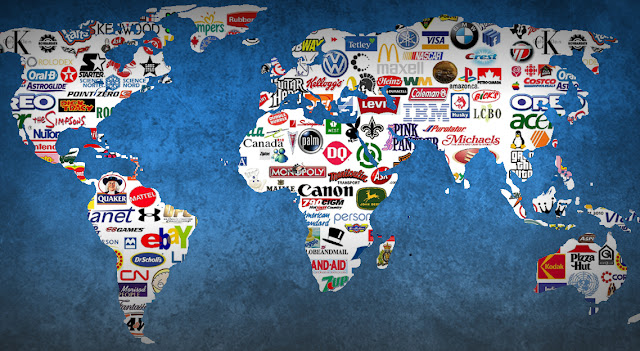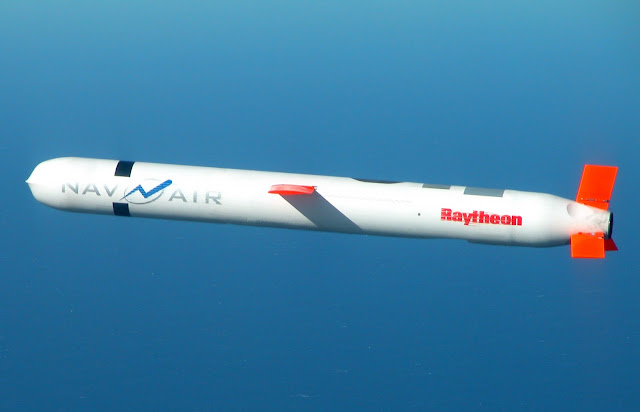America’s Dwindling Power. Your Trip Through the American Empire

The October 8, 2015 US Senate Committee on Armed Services hearing titled, “Russian Strategy and Military Operations,” gave viewers an instructive snapshot at the current state of America’s dwindling power.
Enter the American Empire
The hearing is one of many interfaces between corporate-financier funded policy think tanks and the politicians who will ultimately rubber stamp their schemes and designs into law. It consists of a panel of bought-off, self-serving senators, listening to think-tank academics with no practical experience along with retired generals drawing paychecks by keeping big-defense, big-oil, big-ag, big-finance, and others well fed.
This particular hearing included Heather Conley of the Center for Strategic & International Studies (CSIS) (donors here), Stephen Sestanovich of the Council on Foreign Relations (CFR) (donors here), General James Jones (USMC ret.) now of the Brent Scowcroft Center On International Security of the Atlantic Council (donors here), and Generael John Keane (US Army, ret.) of the Institute For The Study Of War (ISW) (donors here).
Each witness providing testimony is a member of a corporate-financier funded and directed policy think tank. Looking through their donors and boards of directors, one sees several common denominators – big-oil, big-defense, big-agriculture, big-pharma, big-finance, and other big-businesses forming the foundation of Wall Street and Washington’s current power structure.
Considering that the issues being discussed before the US Senate Committee on Armed Services revolve around the application of military force throughout the world toward achieving not the territorial defense of the United States, but defending what are called US “interests” abroad – including the encirclement, containment, and eventual overthrow of geopolitical and socioeconomic competitors – immense conflicts of interest are obvious. In fact, it is clear that these corporate-financier interests are the primary force driving US foreign policy and military planning.
Corporations like Raytheon, Lockheed Martin, Boeing, General Dynamics, and Northrop Grumman are all well represented. With war and confrontation constantly peddled before the committee, including the senseless expansion of NATO along Russia’s borders, it is clear who stands to benefit whether or not a sound long-term strategy can be achieved, or even for that matter, developed and articulated properly in the first place.
Lockheed Martin’s F-35 Lightning Joint Strike Fighter program alone will cost nations around the world well over a trillion dollars – making it the most expensive weapons program in human history – all justified by the conflicts and confrontations dreamed up in the halls of various corporate-financier funded think-tanks and sold to the US Senate by witnesses like General Jones, General Keanes, Sestanovich, and Conley.
Likewise, the sponsorship and direction of Exxon, BP, Chevron, Shell, and others involved in discussions about how to disrupt European-Russian relations to cut off and isolate Russia’s gas export industry has less to do with defending peace and stability globally, and more to do with defending and expanding the monopolies of Western energy-giants – even at the cost of global peace and stability.
A Snapshot of American Megalomania
During the hearing the four witnesses established the threat they claimed Russia posed to US interests abroad and more specifically the need to expand NATO to confront this threat. Rather than welcomingRussia’s involvement in Syria aimed at destroying terrorist forces operating there, the witnesses portrayed the deterioration of US primacy in the region and in the world while pleading with an agreeing Senate committee that America must reassert itself.
To illustrate just how irrational and absurd US foreign policy has become, at several points General Keane suggested that the US create “free zones” inside Syria for US-backed militants to seek shelter from Russian airstrikes. To ensure Russia will not strike them anyway, General Keane suggested that refugees also be placed in these zones. In other words – use the refugees as human shields against Russian attacks.
That he shared this plan in front of a committee full of nodding US Senators reveals US foreign policy to be reduced to almost a tropism – no longer rationally examining itself and the world it fits into – but rather simply attempting to grow as large as possible like a blind force of nature.
A grand strategy for how the US imagines the world in the future and how it fits into that world was noticeably absent as the witnesses traversed the global map from the Arctic to the Mediterranean scheming on how best to defeat Russian President Vladimir Putin. It constitutes a strategy not toward any pragmatic or sustainable goal or world outlook, but rather the naked pursuit of power – of hegemony.
Hegemony is a self-serving pursuit. It requires that the US establish proxies, not partners – and that those proxies remain weak and dependent on their patron – two characteristics few national leaders would aspire toward or be satisfied with for long.
 It also requires justification at home, since few taxpayers would willingly support a ruling elite who sought hegemony and all the benefits it entailed for themselves while passing on costly wars, social neglect, and all related expenditures to the average citizen. Therefore, the pursuit of hegemony also requires massive amounts of unsustainable deception, both at home and abroad – and explains why the media also plays a prominent role within the think-tank-government equation.
It also requires justification at home, since few taxpayers would willingly support a ruling elite who sought hegemony and all the benefits it entailed for themselves while passing on costly wars, social neglect, and all related expenditures to the average citizen. Therefore, the pursuit of hegemony also requires massive amounts of unsustainable deception, both at home and abroad – and explains why the media also plays a prominent role within the think-tank-government equation.
Despite the committee hearing the witnesses and senators were all in agreement that Russia was the problem and that wider war and confrontation was needed to meet it, they acknowledged the ineffectiveness of all available mechanisms to actually achieve that.
They acknowledged Russia’s domination of the information war, America’s shrinking military, and a rudderless domestic energy policy. Not once did the witnesses or senators discuss the idea of looking inward for strength, with all solutions seemingly revolving around disrupting, undermining, targeting, or confronting others.
And while these senators were all technically elected by the American people to represent their best interests, it was clear they were far more interested in what the corporate-financier funded think-tanks had to say about America’s future.
Mulipolarism – Searching for an Exit
Russia has confounded American aspirations toward primacy not because it possesses a larger military or a stronger economy. It certainly does not have more resources to fund its media operations. Instead, it has studied, understood, and applied the basic fundamentals of war.
Russia possesses at the moment the moral imperative – it is widely seen around the world as confronting American hegemony, meddling, warmongering, and domineering. It has successfully exposed the methods with which the US has waged proxy war on Syria and Libya, and highlighted the betrayal of America’s alleged allies in Iraq. In essence, while Russia has been the principle agent leveraging these developments, it was the US itself who provided the fulcrum.
Russia’s concept of a multipolar world gives those who have been offered a place among America’s unipolar world as a proxy, the alternative of a partnership underpinned by national sovereignty, self-determination, and a prevailing balance of power between nations rather than entangling interdependence over which the US and its international institutions arbitrate.
Russia, Iran, Syria, and others who have found themselves on the wrong end of American-driven globalization have learned the merits of national self-sufficiency and self-reliance. It would be hoped that these good habits carry themselves over should this multipolar world emerge.
Localize – Your Exit from the American Empire
While Russia and its allies attempt to create a wider balance of power across the world on the global stage, it is important for people to understand that unless fundamental changes are made regarding what a nation is and how it fits into the wider geopolitical world, the world runs the risk of trading one hegemony in for another inevitably in the future.
A balance of power between nations is not enough. A balance must then be struck within each nation, on a provincial or state level. Further still, that balance must be established locally.
Technology has made it possible for a wider range of modern social, political, and economic processes to be carried out by fewer and fewer people. The ability for nations to nationalize economic activity that they once depended on immense multinational monopolies to do for them is an example of this trend on the larger end of the spectrum. Russia, China, and Iran have in many areas reached parity with the US military industrial complex regarding key technologies – as admitted by the witnesses before the US Senate Armed Services Committee.
Nations developing their own domestic car manufacturing companies, pharmaceutical production, and telecom and IT solutions are also examples of this.
On a more local level, technology has made it possible for communities and even individuals to engage in social, economic and political activity that once required immense amounts of capital and manpower. The Internet alone allows writers to access millions of readers with free, open source tools. A half-century ago, a printing press, TV studio, or radio station requiring huge amounts of money and manpower would have been required to do the same. The same could be said of the widening proliferation of personal manufacturing technology like computer-controlled mills, lasers, water jets, and 3D printers.
Looking again at the US Senate Committee on Armed Forces and the immense corporate-financier interests selfishly, almost blindly pushing US foreign policy along from one war to the other like a swarm of locust, Americans must realize that no matter who they vote in, until that nexus of unwarranted power and influence is removed from the equation, nothing else can or will change.
Many communities today – regardless of what country they are in – depend on many of the corporate-financier interests driving US foreign policy. By moving away from these corporate-financier monopolies, and replacing them permanently with local alternatives, we begin to drain the swamp where special interests and the many disease they carry breed. In addition to putting in check runaway foreign policy,building stronger communities upon a foundation of local industry and entrepreneurship is an effective way to take the wealth horded by Wall Street and put it back into the hands of the people more evenly.
Stronger communities then have a greater say in the destiny of their provinces or states, and more say in the destiny of their country. They have a greater say because they have greater socioeconomic leverage to put pressure on political parties and representatives who have thus far been content listening only to policymakers furnished by the Fortune 500.
And while this seems like a distant dream, the world should understand that this change is already underway. The number of national businesses around the world able to compete and dilute the monopolies of Wall Street and London have already contributed to the deterioration of American primacy on the global stage.
General James Jones while answering questions during the recent hearing noted that America’s position in the world was not based solely on military power, but also included political and economic components. The key to repositioning America in the world – preferably back behind its own borders and regional spheres of influence – also must include political and economic components in addition to the very obvious military component now being exercised by Russia and its allies in Syria.
While the military and political components include a relatively limited number of direct participants, the economic component includes literally every worker on the planet. Where and how they choose to spend their money effects directly the Fortune 500, their wealth and influence, and those competitors that threaten to upset and dilute their still overwhelming monopolies.
Some may believe their individual contribution is too insignificant to matter, but it is a fact that millions of these “insignificant” individual contributions have already made a difference and each contribution is no less significant than the actions of any single soldier fighting on a battlefield. Individually they may seem insignificant. Collectively, they add up to victory.
The bottom line is that you are not a spectator. A single act has an effect on the vector sum of global events – however insignificant. By building up stronger communities, through local organic agriculture, through the proliferation and use of personal manufacturing and IT technology, and by the creation of local businesses and institutions that permanently replace domineering national and multinational corporations, we can begin adding up our individual acts into a final exit from the American Empire.







